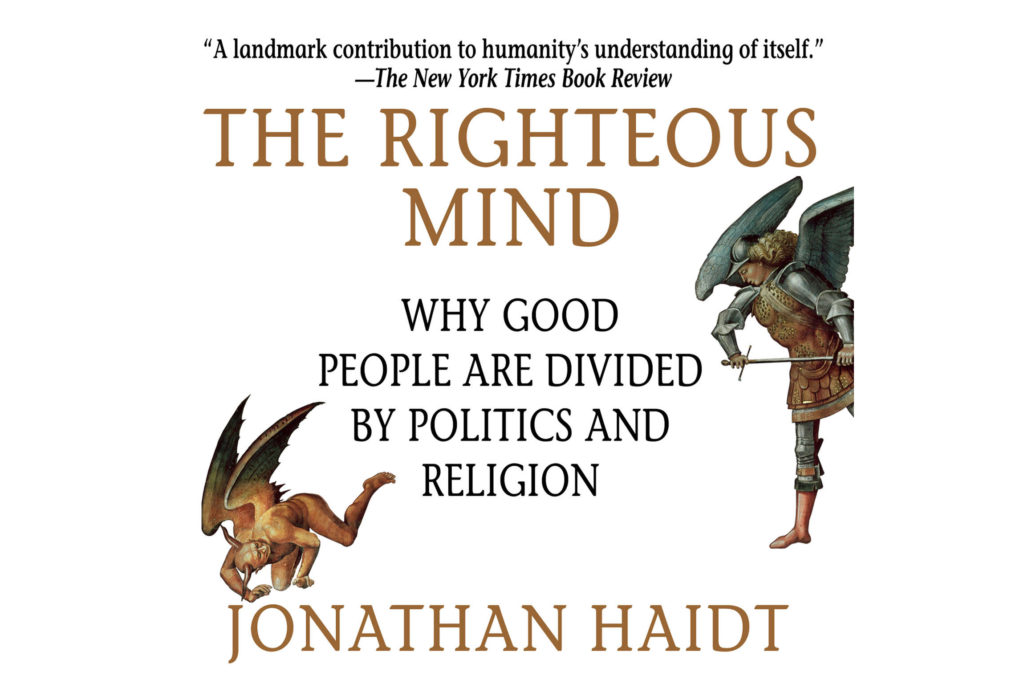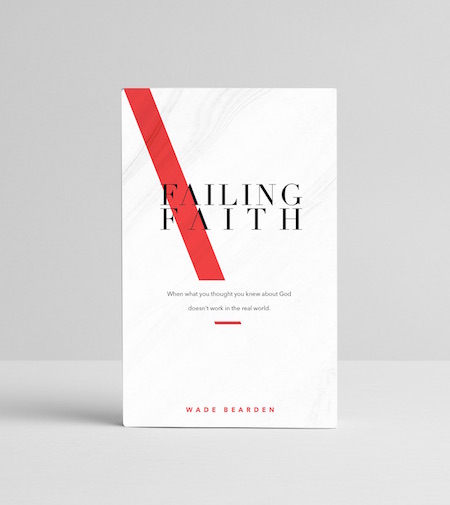
I just finished reading Jonathan Haidt’s book The Righteous Mind: Why Good People Are Divided by Politics and Religion and I’m not sure I can think of a recent work that’s more “for us right now.” Haidt’s research on political and religious discourse feels like it comes straight from one of those old fashioned California gold mines.
Haidt argues that our minds process information through two distinct yet intimately connected systems. Haidt compares the first system to an elephant. This part of our mind (which some experts call System 1) handles our “automatic processes,” including emotion and intuition. A good example would be how our brains automatically add 2+2 or read the word “red.” We don’t make a conscious decision to do those things, they just happen. System 1 also includes our biases—those internal beliefs ingrained into psyche.
Haidt describes System 2 as a rider on top of System 1’s elephant. The rider is our conscious reasoning. If the elephant tells us what 2 + 2 equals, the rider is who we go to for 12 x 15. (Note: Haidt first published this analogy in a previous book titled The Happiness Hypothesis.)
Usually, when we talk to someone about a deeply emotional topic like religion or politics, we speak to the rider. We throw facts at the rider. We scream at the rider. Per Haidt, this won’t change anyone’s mind. The inner beliefs of a person, their emotional response, is already going in the opposite direction. And if the elephant is going one way, then the rider follows along, too.
Haidt conducted a number of experiments where he asked subjects if certain taboo scenarios where morally wrong. The elephant moved, and the subjects mostly said yes. When asked to explain themselves, many people didn’t have any logical arguments to back up their beliefs. So, they made them up on the spot. Even for fairly cut and dried judgements, we still struggle to include the rider. Haidt says, “The rider is skilled at fabricating post hoc explanations for whatever the elephant has just done, and it is good at finding reasons to justify whatever the elephant wants to do next” (54).
Here’s the highlight quote for me:
The rider and elephant work together smoothly to fend off attacks and lob rhetorical grenades of our own. The performance may impress our friends and show allies that we are committed members of the team, but no matter how good our logic, it’s not going to change the minds of our opponents if they are in combat mode too. If you really want to change someone’s mind on a moral or political matter, you’ll need to see things from that person’s angle as well as your own (58).
I think what frustrates me so much about discussion these days (and Haidt alludes to it) is that there are many people who know how to say good things, but few people who know how to say good things persuasively. Social media exacerbates the problem. Social media doesn’t reward long, charitable responses. Rather, it crowns the individuals who “lob rhetorical grenades.” At this point, I wonder how much good can come from debating over deep topics via the feed.
As I’m working through how to both think and discuss better, here are a few “rules” that immediately come to mind. Rules designed to speak to the elephant first, then the rider.
- Don’t post about politics and religion online if your only goal is to prove how intelligent you are or to prove how unintelligent your opponents are.
- Posting on social media will probably only change someone’s mind if they’re already close to your position. Most radical change happens over long periods of time in face-to-face relationships.
- “Owning” or humiliating an opponent will energize people who agree with you, but make it harder for those opposite you to understand your position.
- You may need to change parts of your perspective as well. A little humility goes for miles.
- Listen to other people. (Yeah I know it’s elementary, but most people aren’t good at it.)
- Before you responds to someone, imagine what it’s like to wake up as that person, to go to work in their footwear, to interact with their friends and family members. If you can’t imagine, then you need to listen more.
Not an exhaustive list, but a place to begin.





[…] The Righteous Mind: Why Good People Are Divided by Politics and Religion by Jonathan Haidt – Probably the best book I’ve read this year. Everyone needs to read it before arguing with people online (that way you’ll stop arguing with people online). Thoughts here. […]